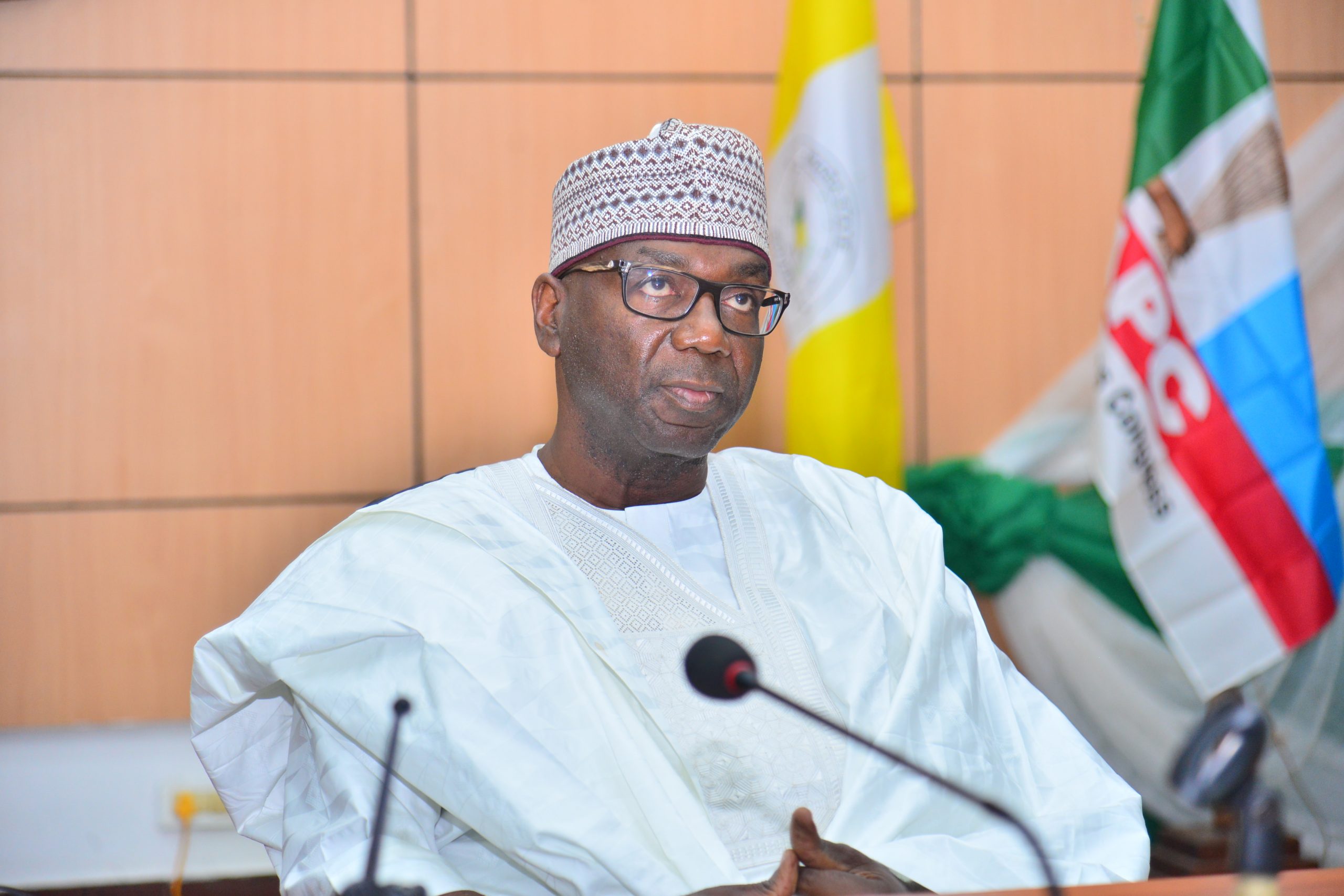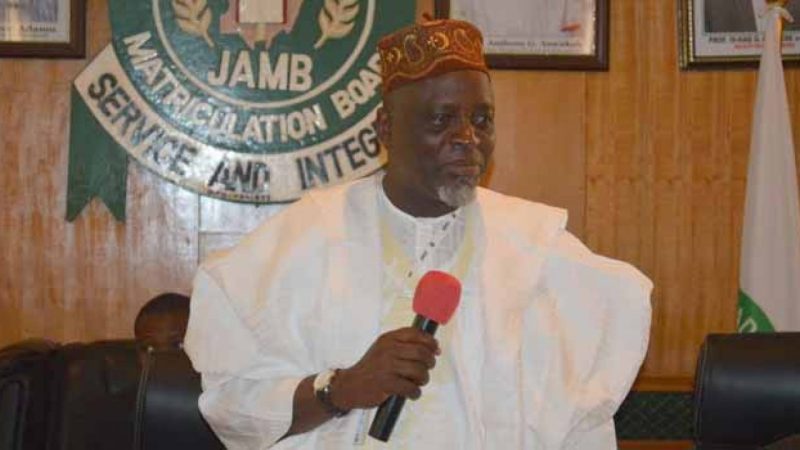Education
Kwara okays use of hijab in public schools

The Kwara State Government has approved the use of hijab by female students in all public secondary schools in the state, thus ending a week of controversy and protest over the issue.
The state government also directed the reopening of all mission schools closed schools over the issue, with effect from March 8, 2021.
The following is a statement issued on Thursday by the state government and signed by the Secretary to the Kwara State Government, Prof Mamma Sabah Jibril:
Sequel to recent developments in our state over the status of the hijaab in public/grant-aided schools, the state government has consulted widely with thought leaders and leaders of both Muslim and Christian communities with a view to clarifying issues and reaching a consensus. The last of such meetings was held on Wednesday February 24, presided by His Excellency Governor AbdulRahman AbdulRazaq.
At least 10 schools of interest were earlier shut down to maintain peace and public order as well as prevent mischief makers from taking undue advantage of the development.
The state government has considered submissions of all major interest groups on the matter. It has also thoroughly considered the education law of Kwara State, the prevailing court judgments and current global trends of multiculturalism in evolving a consultation-based decision that will bring lasting peace and understanding to our communities. The government has also paid particular attention to the ‘declaratory’ nature of the subsisting judgments of the Court of Appeal and their purports.
Consequently, the government hereby acknowledges and approves the right of the Muslim schoolgirl to wear the hijab, and directs the Ministry of Education and Human Capital Development to come up with a uniform hijab for all public/ grant-aided schools, which will be the accepted mode of head covering in schools. Any willing schoolgirl with the approved (uniform) hijab shall have the right to wear same in public/grant-aided schools.
Also, the government affirms the right of every child in public schools to freedom of worship.
The government hereby directs that the affected 10 schools should reopen to commence classes on Monday 8th March 2021.
Similarly, the government has carefully noted submissions regarding ownership of grant-aided schools and related issues. While the status of these schools is the subject of judicial determination, this and other related matters will soon be subjected to a technical committee to advise accordingly. The government reassures all members of the public that it will act in good conscience at all times.
The government asserts that there is no victor or vanquished on the hijaab question. It urges the two faith communities, especially the leaders, opinion moulders and media personalities to act with restraint and great responsibility in their public utterances and actions, and continue to live in peace and harmony with one another. The government commends all the thought and religious leaders on both sides for their forbearance, understanding and commitment to peace.
Prof Mamma Sabah Jibril
Secretary to the Kwara State Government
February 25, 2021.
Education
No Scrapping of JAMB: FG Dismisses Viral Rumours

No Scrapping of JAMB: FG Dismisses Viral Rumours
The Federal Government has firmly dismissed viral social media claims suggesting that the Joint Admissions and Matriculation Board (JAMB) has been scrapped as a requirement for tertiary institution admissions in Nigeria.
In a statement issued on Sunday, the Federal Ministry of Education described the reports as false, misleading, and entirely unfounded, stressing that Joint Admissions and Matriculation Board remains the statutory authority responsible for coordinating admissions into universities, polytechnics, colleges of education, and other tertiary institutions nationwide.
The Ministry clarified that no policy decision has been taken by the Federal Government to abolish JAMB or remove it from the admission process. It urged prospective candidates, parents, and guardians to ignore the rumour and rely solely on official government communications.
READ ALSO:
- US Adds 19 More Nigerians to ‘Worst of the Worst’ Deportation List
- Gunmen Storm Gbugbu in Kwara, Residents Flee as Panic Spreads
- FG to Launch Monthly Revenue Transparency Dashboards to Improve Fiscal Accountability
According to the statement, JAMB continues to play a central role in ensuring transparency, fairness, and standardisation through the Unified Tertiary Matriculation Examination (UTME) and the Central Admissions Processing System (CAPS).
“The attention of the Ministry has been drawn to misleading information suggesting that JAMB has been scrapped. This is not true. There is no such directive from the Federal Government,” the statement said.
The Ministry warned individuals and platforms spreading fake news to desist, noting that such misinformation creates unnecessary anxiety among candidates preparing for admission and undermines confidence in the education system.
Candidates were encouraged to continue registration and admission processes strictly in line with JAMB guidelines and instructions from accredited institutions.
Education stakeholders also cautioned against the spread of unverified reports, emphasizing that any major reform to Nigeria’s admission framework would be formally announced through official channels.
The clarification comes as registration activities for the 2026 academic admission cycle continue, with authorities reiterating their commitment to improving access, credibility, and efficiency in higher education admissions across the country.
No Scrapping of JAMB: FG Dismisses Viral Rumours
Education
Reasons Behind UniAbuja’s Expulsion of 28 Students, Withdrawal of 15 Certificates

Reasons Behind UniAbuja’s Expulsion of 28 Students, Withdrawal of 15 Certificates
The University of Abuja (UniAbuja), now renamed Yakubu Gowon University, has expelled 28 students and revoked certificates of 15 graduates following findings of serious academic and disciplinary violations.
The decision was made at the 191st Regular Meeting of the University Senate held on Thursday, January 28, 2026, after reviewing reports and recommendations from the Student Disciplinary Committee (SDC).
Reasons for Expulsion and Certificate Withdrawal
According to a statement signed by Dr. Habib Yakoob, Acting Director of Information and University Relations, the students were found guilty of offences including threats to life, physical assault, examination malpractice, conspiracy, burglary, theft, cult-related activities, possession and use of hard drugs, and falsification of O’Level results submitted during admission. Some students also failed to appear before the committee despite repeated invitations.
The 15 graduates had their certificates withdrawn for similar non-compliance, rendering their credentials null and void. Meanwhile, nine students were cleared after investigations, and 33 others received formal warnings for infractions including conspiracy, hostel racketeering, and fighting.
READ ALSO:
- Yoruba Muslim Group Dismisses Viral Ramadan Date Claim, Reaffirms Sultan of Sokoto’s Authority
- FCT Council polls: APC Wins Four Chairmanship Seats as PDP Takes Gwagwalada
- Dangote Opens Refinery Investment to Nigerians With Public Share Sale Plans
University’s Commitment to Discipline
The Vice-Chancellor and Chairman of Senate, Professor Hakeem Babatunde Fawehinmi, reaffirmed the university’s dedication to maintaining a safe, disciplined, and conducive learning environment. He emphasised that academic integrity is a core principle and that violations would be sanctioned without compromise.
Professor Fawehinmi praised the SDC for its thorough and diligent handling of cases and urged students to conduct themselves responsibly to safeguard their academic futures. He also highlighted ongoing university initiatives, including student engagement, counselling, and orientation programmes, aimed at preventing misconduct and promoting responsible citizenship and academic excellence.
The university described the actions as part of a zero-tolerance approach to misconduct, reinforcing its commitment to upholding high moral and academic standards on campus.
Reasons Behind UniAbuja’s Expulsion of 28 Students, Withdrawal of 15 Certificates
Education
UTME: JAMB Clarifies Position on Hijab During Biometric Capture

UTME: JAMB Clarifies Position on Hijab During Biometric Capture
The Joint Admissions and Matriculation Board (JAMB) has clarified that candidates are not required to remove their hijab during the Unified Tertiary Matriculation Examination (UTME) registration process.
The examination body issued the clarification following the circulation of a viral video alleging that a Muslim candidate was compelled to remove her hijab before capturing her biometric photograph at a registration centre.
In a statement addressing the controversy, JAMB dismissed claims of a policy prohibiting the use of hijab, describing such reports as misleading. The board reiterated that it respects candidates’ religious rights and does not mandate the removal of religious head coverings during registration.
READ ALSO:
- ₦13.7bn Payroll Fraud Claim Pits Audit Firm Against Osun Government
- Breaking: INEC Declares APC’s Joshua Ishaku Winner of Bwari Chairmanship Election
- FCT Poll: APC’s Maikalangu Wins AMAC Chairmanship as Collation Continues
However, JAMB explained that during biometric data capture, candidates may be asked to adjust their head coverings slightly to ensure that key facial features are visible for proper identification. According to the board, this requirement is strictly for technical purposes and aligns with standard identification procedures used in official documentation processes.
The board emphasized that the adjustment does not equate to a ban on hijabs, noting that clear visibility of facial features is necessary to meet biometric verification standards and prevent identity-related issues.
JAMB urged the public to disregard misinformation and advised candidates and parents to seek clarification through official communication channels to avoid unnecessary panic.
The clarification comes amid growing public interest in ensuring that examination procedures remain inclusive while maintaining the integrity of the registration and identification process.
UTME: JAMB Clarifies Position on Hijab During Biometric Capture
-

 International2 days ago
International2 days agoAyatollah Ali Khamenei, Iran’s Supreme Leader, Dies After U.S.–Israeli Strikes
-

 International3 days ago
International3 days agoBREAKING: Israel Launches Pre‑emptive Strike on Iran, Explosions Reported Across Tehran
-

 International2 days ago
International2 days agoIran: US, Israel launch another strikes, Commander, Defence leader, five other top officials killed
-

 International2 days ago
International2 days agoMiddle East on Edge as Iran Retaliates Against Israel, U.S Bases
-

 International3 days ago
International3 days agoTrump Urges Iranians to Overthrow Government Amid US-Israeli Attacks
-

 International2 days ago
International2 days agoKamala Harris Slams Trump for Dragging U.S. Into ‘Unwanted War’ in Iran Conflict
-

 International3 days ago
International3 days agoReports: US Forces Join Israeli Offensive Against Iran
-

 Opinion3 days ago
Opinion3 days agoOur children must be kept away from Obi’s mob
















You must be logged in to post a comment Login